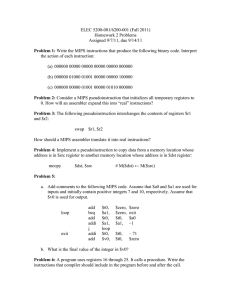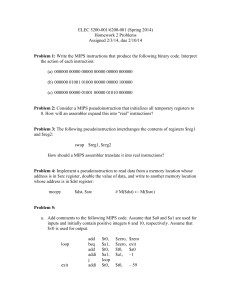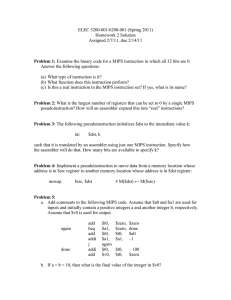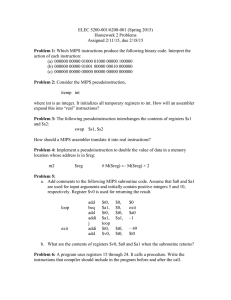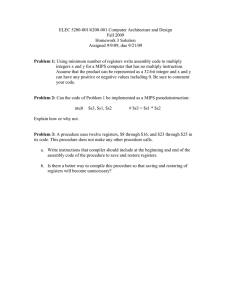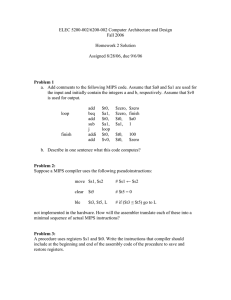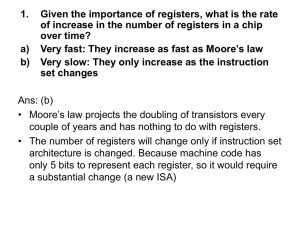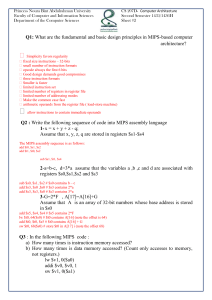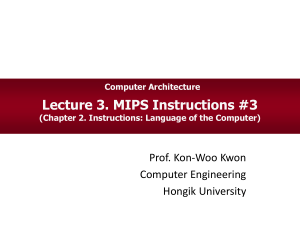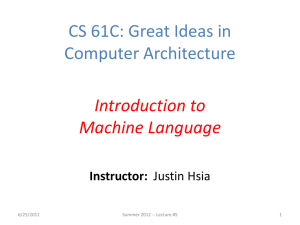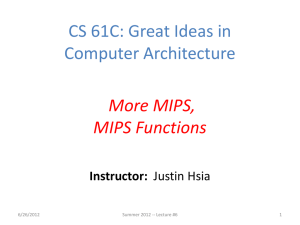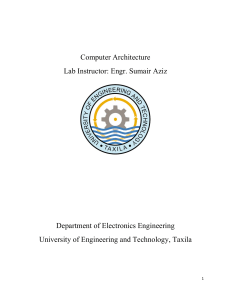ELEC 5200-001/6200-001 (Fall 2014) Homework 2 Problems Assigned 9/3/14, due 9/10/14
advertisement
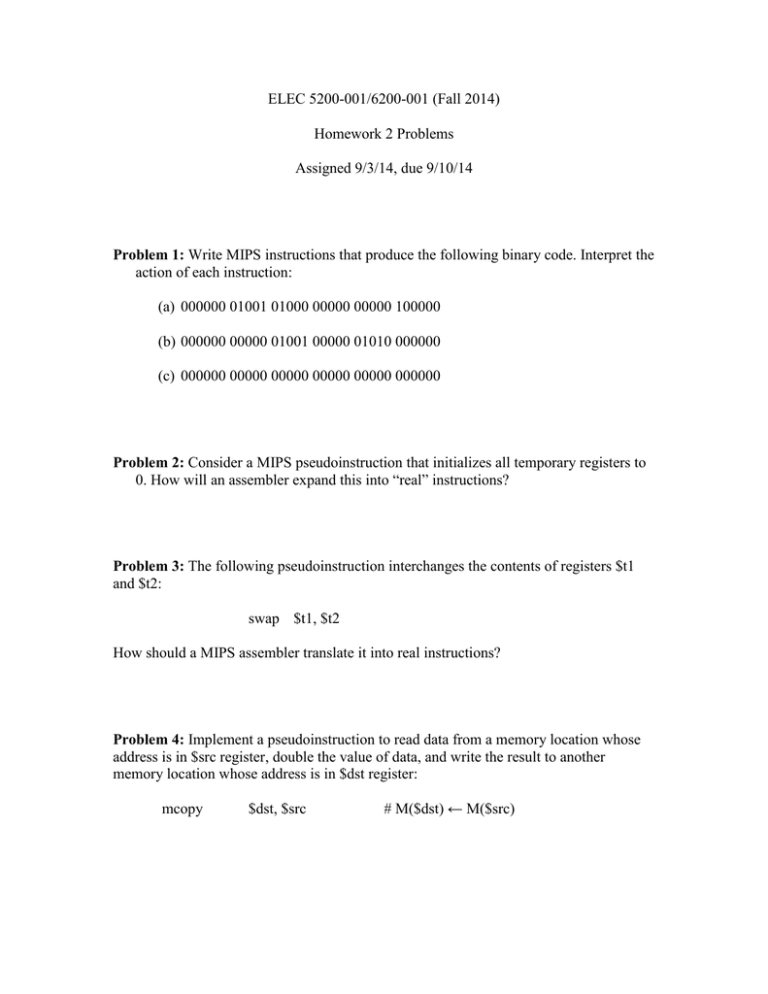
ELEC 5200-001/6200-001 (Fall 2014) Homework 2 Problems Assigned 9/3/14, due 9/10/14 Problem 1: Write MIPS instructions that produce the following binary code. Interpret the action of each instruction: (a) 000000 01001 01000 00000 00000 100000 (b) 000000 00000 01001 00000 01010 000000 (c) 000000 00000 00000 00000 00000 000000 Problem 2: Consider a MIPS pseudoinstruction that initializes all temporary registers to 0. How will an assembler expand this into “real” instructions? Problem 3: The following pseudoinstruction interchanges the contents of registers $t1 and $t2: swap $t1, $t2 How should a MIPS assembler translate it into real instructions? Problem 4: Implement a pseudoinstruction to read data from a memory location whose address is in $src register, double the value of data, and write the result to another memory location whose address is in $dst register: mcopy $dst, $src # M($dst) ← M($src) Problem 5: a. Add comments to the following MIPS subroutine code. Assume that $a0 and $a1 are used for input arguments and initially contain positive integers 6 and 10, respectively. Register $v0 is used for returning the result. loop exit add beq add addi j addi add $t0, $a1, $t0, $a1, loop $t0, $v0, $0, $0, $t0, $a1, $0 exit $a0 –1 $t0, $t0, 40 $0 b. What are the final values in registers $v0, $a0 and $a1? Problem 6: A program uses registers 15 through 25. It calls a procedure. Write the instructions that compiler should include in the program before and after the call.
